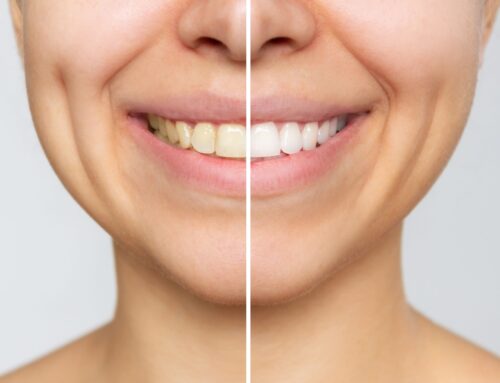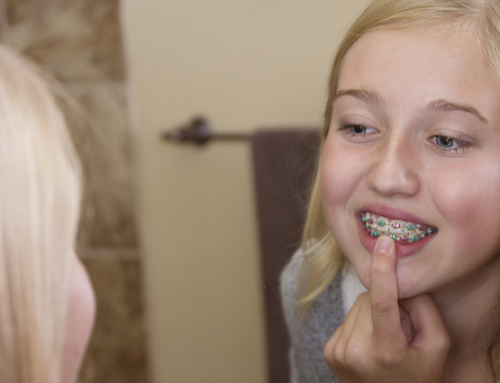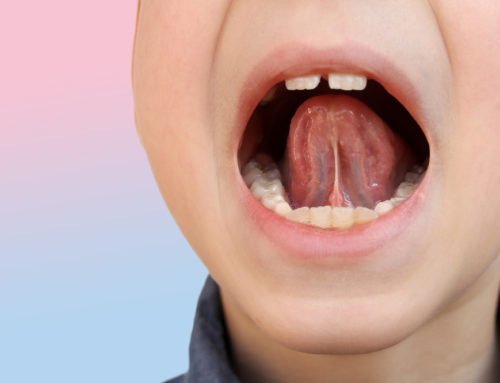5 Oral Health Nightmares You’ll Avoid By Committing to Your Oral Health
Oral health, just like physical and mental health, improves when you commit to it. There’s a reason your dentist and dental hygienist tell you to brush and floss regularly. You may be more inclined to set goals for your physical health, but you shouldn’t forget about setting goals for your oral health.
Your overall health is very dependent on your oral health. Why not set yourself up for success and make it a priority to focus on your oral health while helping your other health resolutions fall into place!
1. Bad Breath
No one likes talking to someone with bad breath. Clinically referred to as halitosis, bad breath affects as much as 65% of the population! And the number one cause, by far, is poor oral hygiene.
When you don’t brush and floss after you eat, food particles linger in your mouth and start to smell. The coating on your tongue is also a key contributor to bad breath.
The real challenge is knowing when you have bad breath.
You can always try cupping your hand over your nose and mouth to try and smell your breath, but it might not always work. Your best bet might just be to ask someone you trust if you have bad breath.
In addition to brushing at least twice a day, and flossing at least once a day, you need to clean your tongue! Other potential causes of bad breath include:
- Dry mouth
- Smoking
- Some medications
- Oral infections
- Gum disease
- Tonsil stones
- Sinus conditions
- Acid reflux disease
2. Gum Disease
Do your gums bleed when you floss? That’s normal, right? False. Most people don’t realize your gums are not supposed to bleed when you brush or floss. If yours do, this is a sign you may have gum disease or are heading in that direction.
Gingivitis is the milder form of gum disease. When you have Gingivitis your gums become red, swollen, and bleed easily. This happens when bacteria in plaque builds up between your teeth and gums from neglecting oral hygiene.
3. Tooth Loss
The thought of losing your teeth hasn’t even crossed your mind. Well, then we suggest making oral hygiene a top priority! Did you know adults 20-64 have lost an average of seven permanent teeth?! If that isn’t bad enough, 10% of Americans between 50 and 64 have no teeth left. Untreated cavities and gum disease can end in tooth loss.
You also should avoid eating and drinking foods that damage your teeth. Beyond just eating sugary and hyper-processed foods, you should also avoid highly chewy or hard foods. Specifically, you should avoid chewing popcorn kernels, ice cubes, and hard candies.
Chewing hard foods eventually leads to cracked and chipped teeth. Depending on how well you’ve taken care of your teeth, the damage can be minor, but your tooth might crack through the middle. In this extreme case, the broken tooth will need to be removed and replaced with a crown.
Chewing on hard foods can also put stress on previously placed fillings. If you’re really unlucky, you might even see one of your fillings break when chewing on something hard.
4. Cardiovascular Disease
This is just the medical way of saying heart disease. But how does your oral health relate to your heart health?
Well, the bacteria from inflammation of the gums and periodontal disease can enter your bloodstream, travel to the arteries in the heart, and cause atherosclerosis, which is the hardening of the arteries.
Atherosclerosis causes plaque to develop on the inner walls of arteries, which causes them to thicken. As the walls of the arteries get thicker, blood flow decreases and can even become blocked.
The worse plaque build-up becomes, the more the risk of heart attack or stroke increases. This is where investing time in your oral hygiene will help you have a healthier and happier life!
5. Respiratory Infections
According to the Journal of Periodontology, gum disease could cause infections in your lungs, including pneumonia. Take a second and think about it. Your teeth and gums are infected, which means there are bad bacteria living in your mouth. Over a long period of time, you are breathing in the bad bacteria that are living in your mouth. It makes sense that would cause you to get sick.
That’s why it’s important to use a good toothbrush, proper flossing techniques, and antiseptic mouthwash. Just taking a few more minutes to care for your teeth will help you improve and protect your overall health.
Poor dental care is also a possible factor in other conditions like immune system disorders, weak bones, problems with pregnancy, and low birth weight.
Establish Good Oral Health Habits
Practicing good dental care habits may benefit you in ways you never thought of! Brush twice a day for two minutes, floss daily, and use a mouthwash to kill bacteria.
Schedule an Oral Health Appointment in Tennessee
You should also make a dental appointment every six months to get a professional cleaning and to make sure you are cavity and gum disease-free.






